
IM Support to UNICEF’s Emergency Coordination and Monitoring and Evaluation Unit
Since 2018, UNICEF has supported Colombia’s emergency response by providing IM support for data collection, analysis, and coordination, ensuring effective humanitarian action for vulnerable populations.
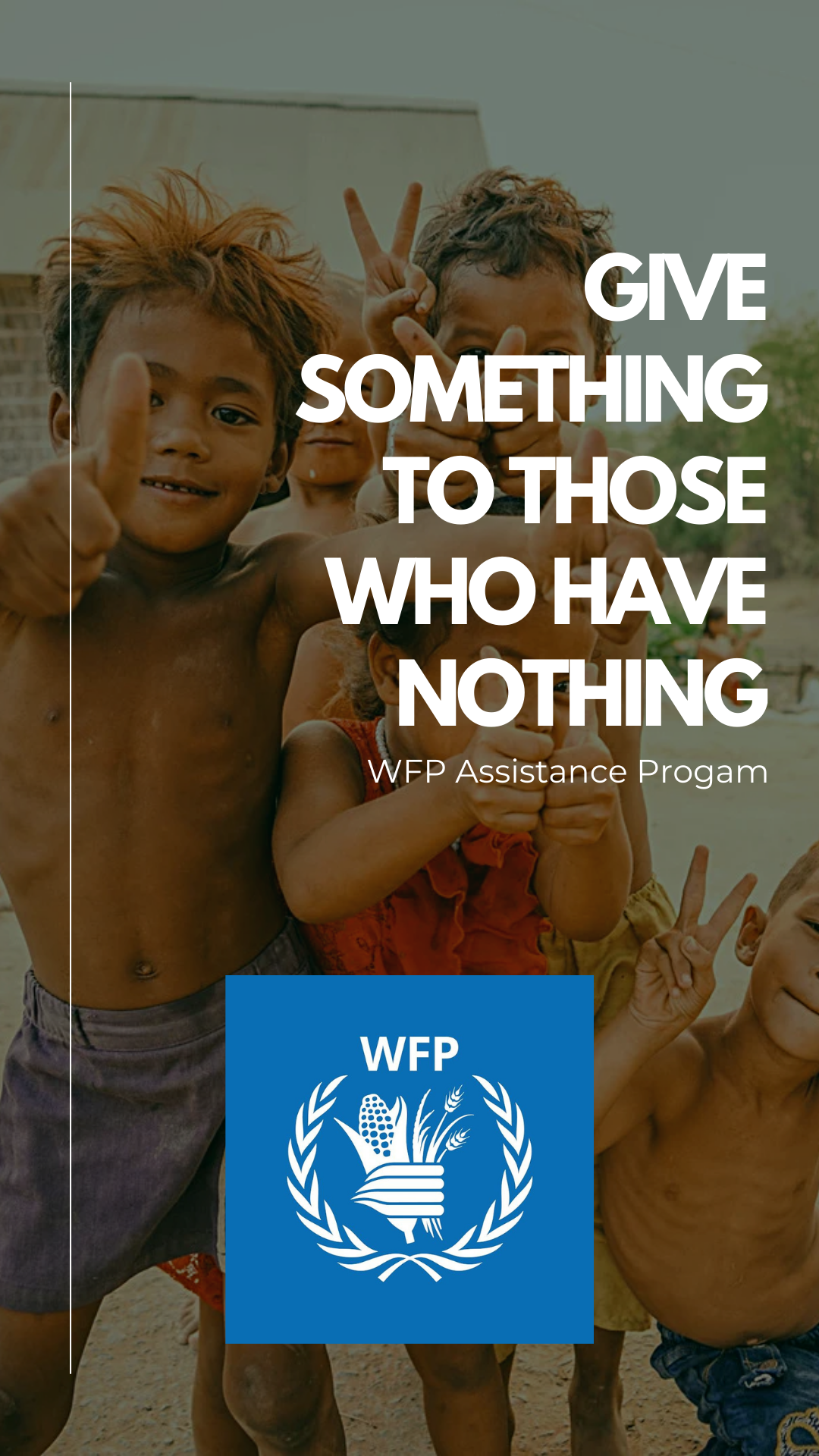
Implementation of WFP Assistance Program
As WFP’s emergency response evolves, data analysis and reporting remain challenging due to fragmented tools. 3iSolution collaborates with WFP to enhance information management, ensuring better integration and trend analysis.
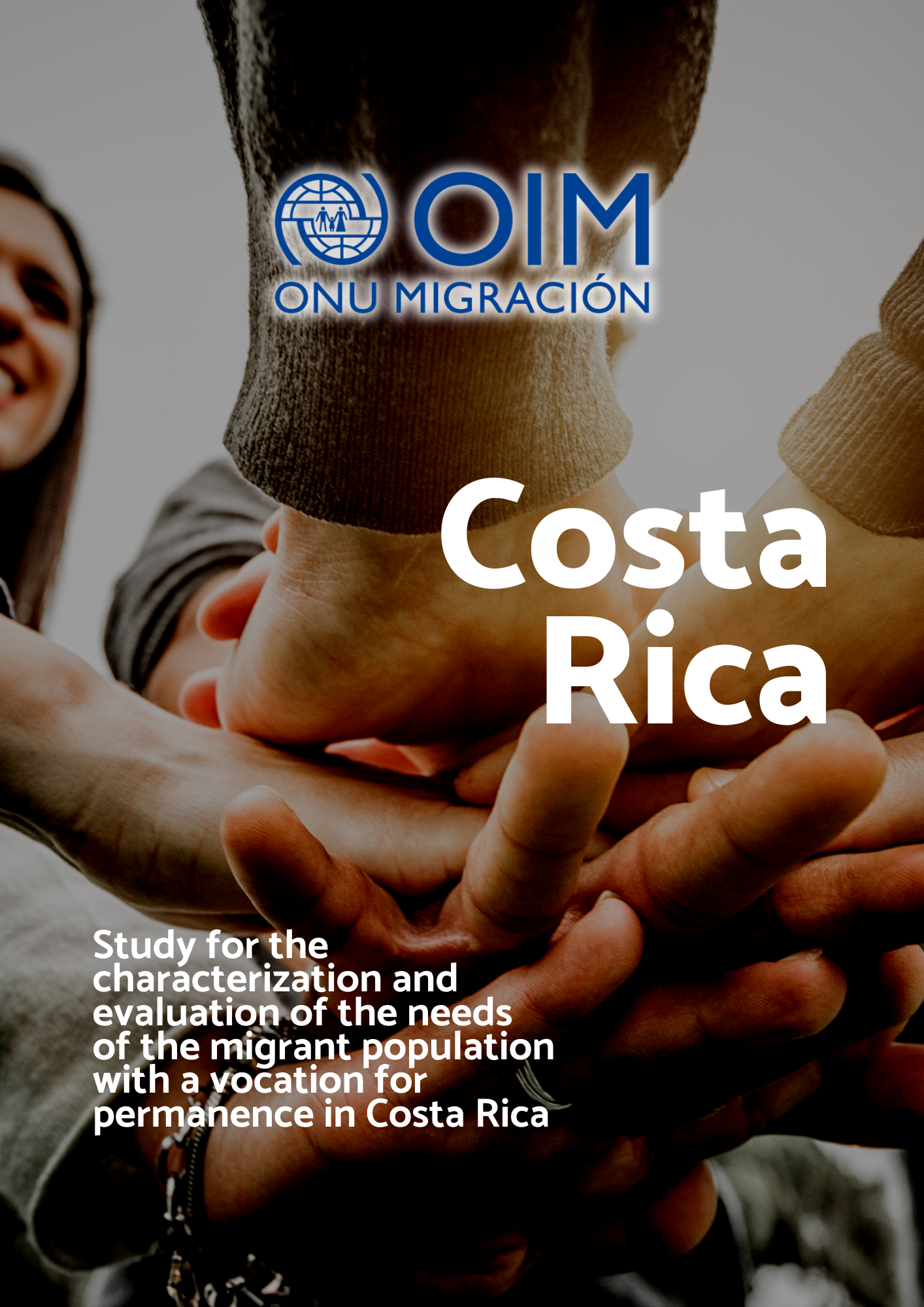
Characterization and evaluation of the needs of the migrant population with a vocation for permanence in Costa Rica
To characterize the migrant population seeking permanent residence in
Costa Rica and assess their needs, socio-economic status, and employment
conditions, we will collaborate with the International Organization for
Migration and the General Directorate of Migration and Foreigners

Data collection and analysis of the needs of Venezuelan people with a vocation for permanence (in destination) within the framework of the platform for the coordination of refugees and migrants from Venezuela (R4V)
A project under R4V to assess the needs of Venezuelan migrants in Costa Rica, supporting national planning and response efforts. Funded by IOM/UNHCR
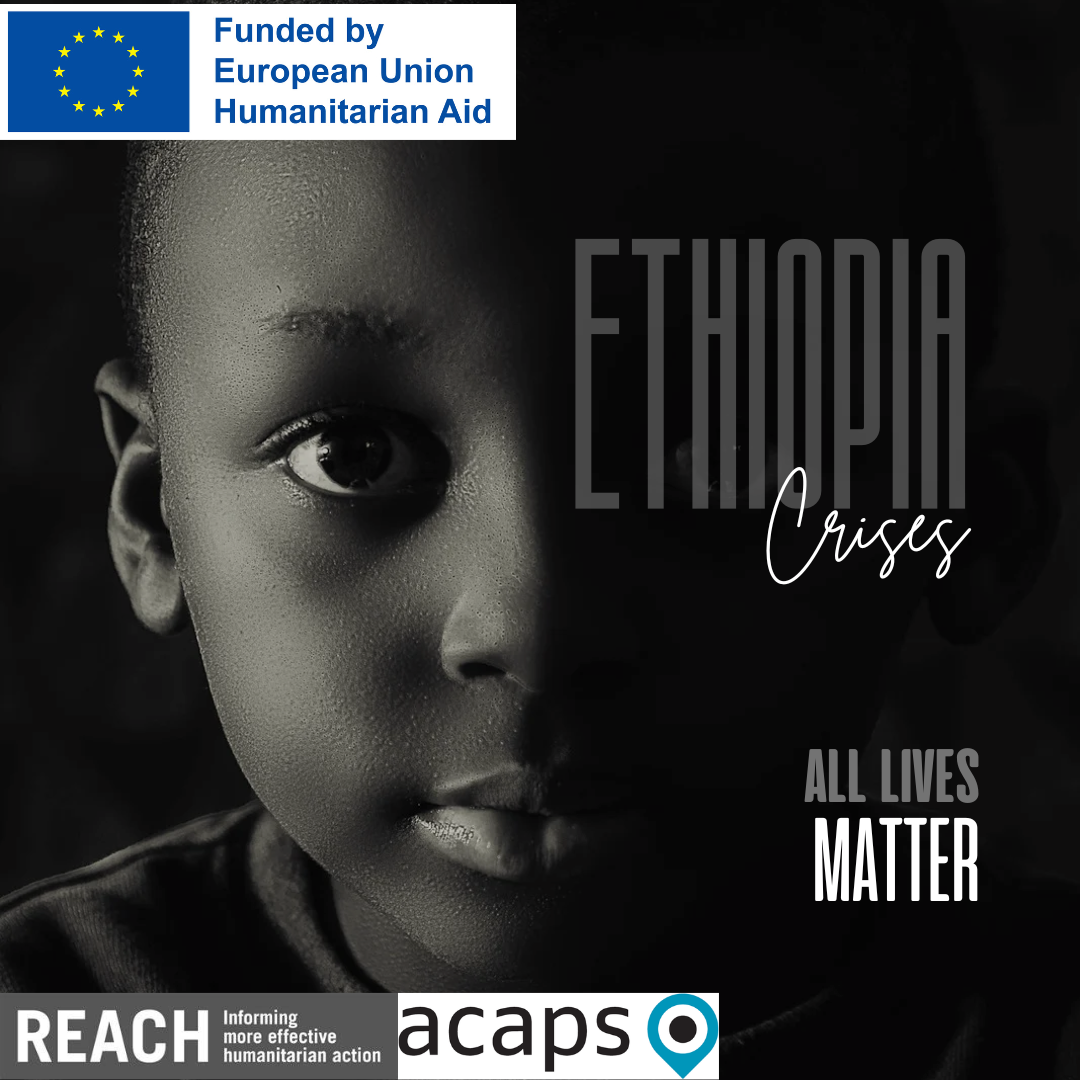
Improved access to coordination of assessments, analysis, and information management services and related capacity-building for humanitarian actors in crisis-a ected areas of Ethiopia
Ethiopia faces multiple humanitarian crises affecting 21.4 million people, with 4.4 million displaced. Despite some improvements, conflicts in northern Ethiopia, Amhara, and Oromia, along with drought, persist. Limited coordination hampers effective response efforts. Strengthening information management is crucial for better decision-making and resource allocation.

Information and Analysis Unit Support for the Humanitarian Emergency in Burkina Faso
Due to the rapid escalation
of the crisis, there is a lack
of accurate and accessible
information for responders
to support the
development of their
humanitarian programs.
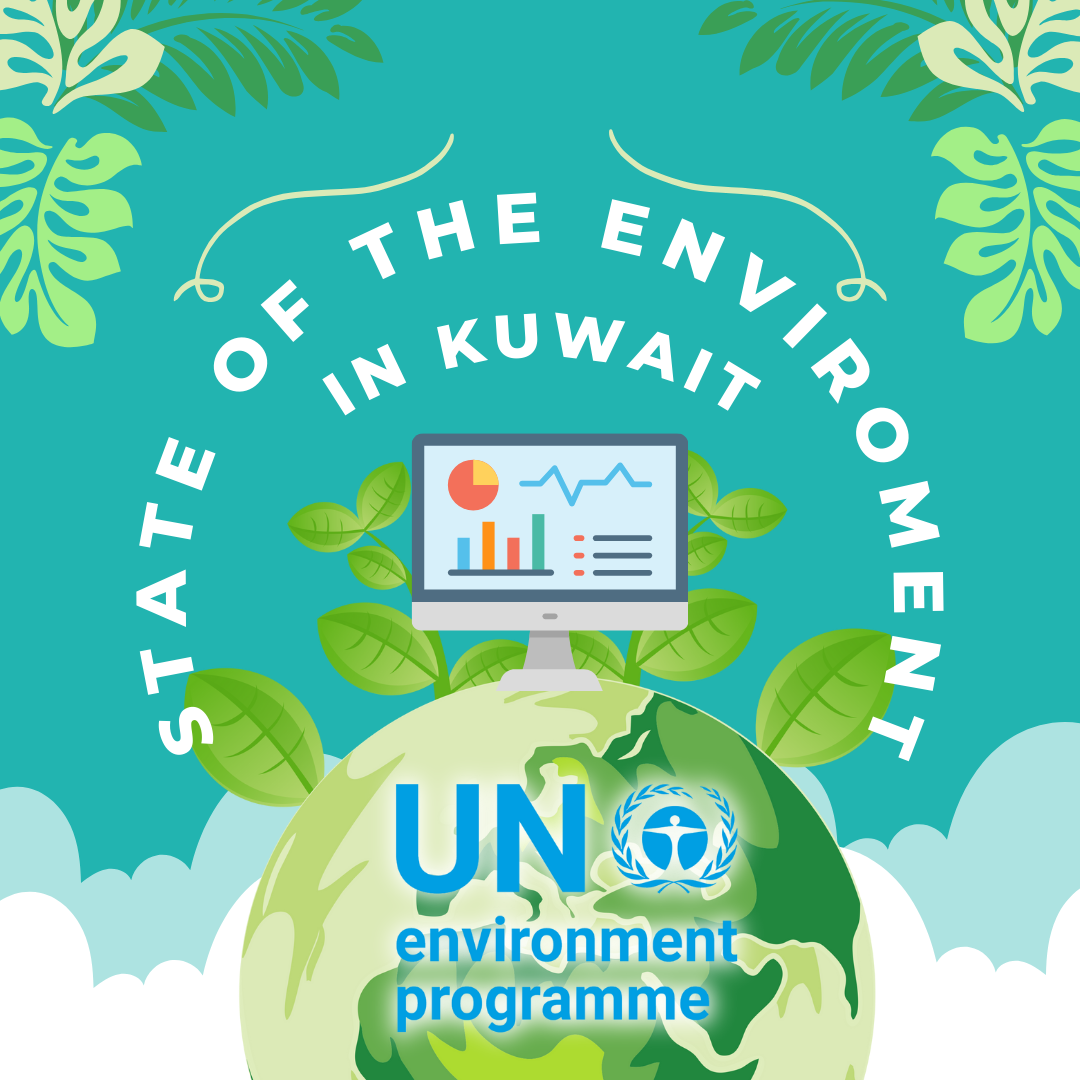
Dashboard for the state of the enviroment
The Kuwait Dashboard Project is a joint initiative by the Kuwait Environment Public Authority (KEPA) and the United Nations Environment Programme (UNEP), led by 3iSolution. It aims to present a comprehensive State of Environment Report (SoE) through an interactive dashboard. This tool will help decision-makers by providing environmental insights, identifying emerging issues, and addressing knowledge gaps.
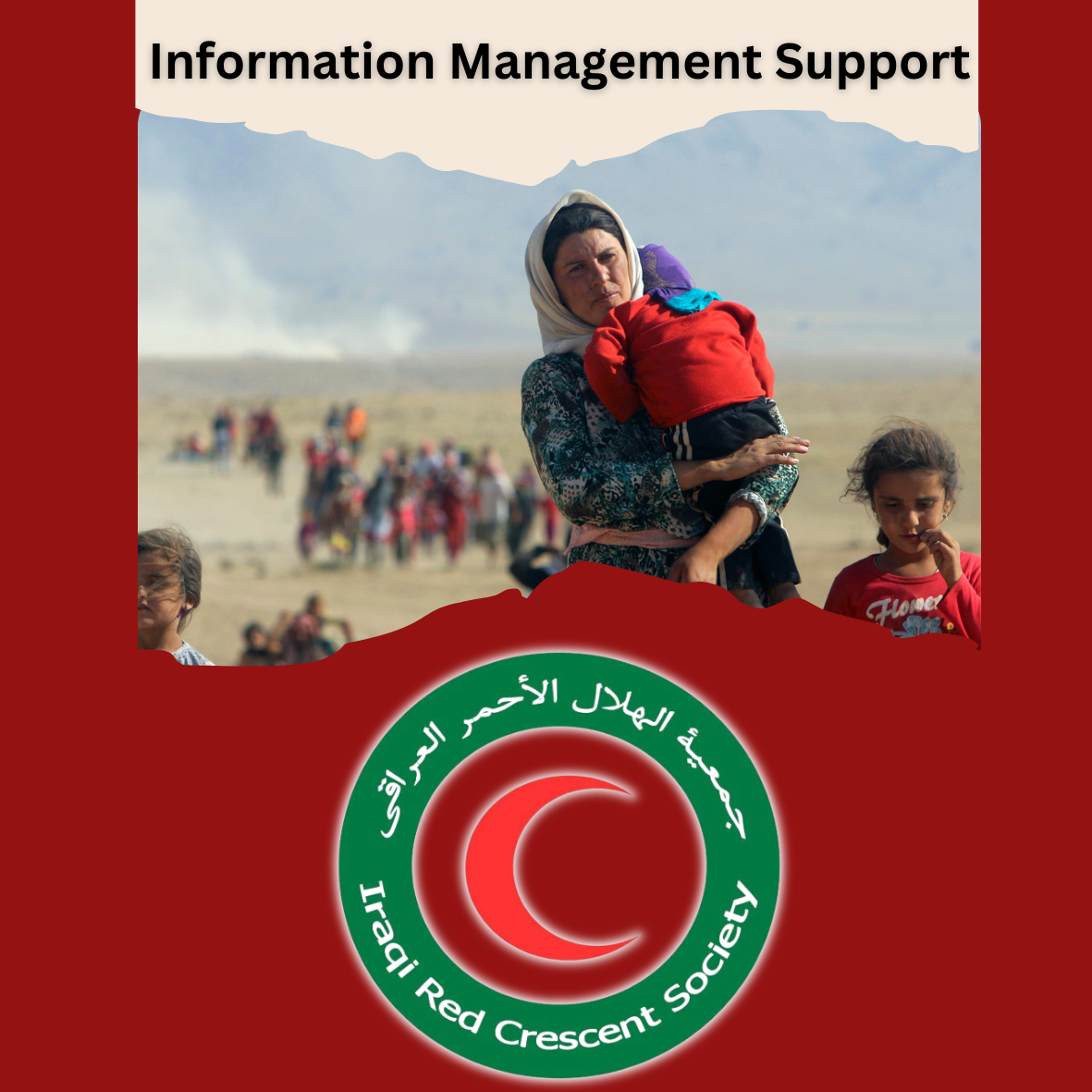
Information Management Support to the Iraqi Red Crescent Society
The Iraqi Red Crescent Society (IRCS) is an independent humanitarian organization that assists people without discrimination. However, its reliance on paper-based reporting and manual data processing made accessing historical data difficult. Additionally, the lack of a centralized database, backup plans, and analytical capacity increased the risk of data loss.
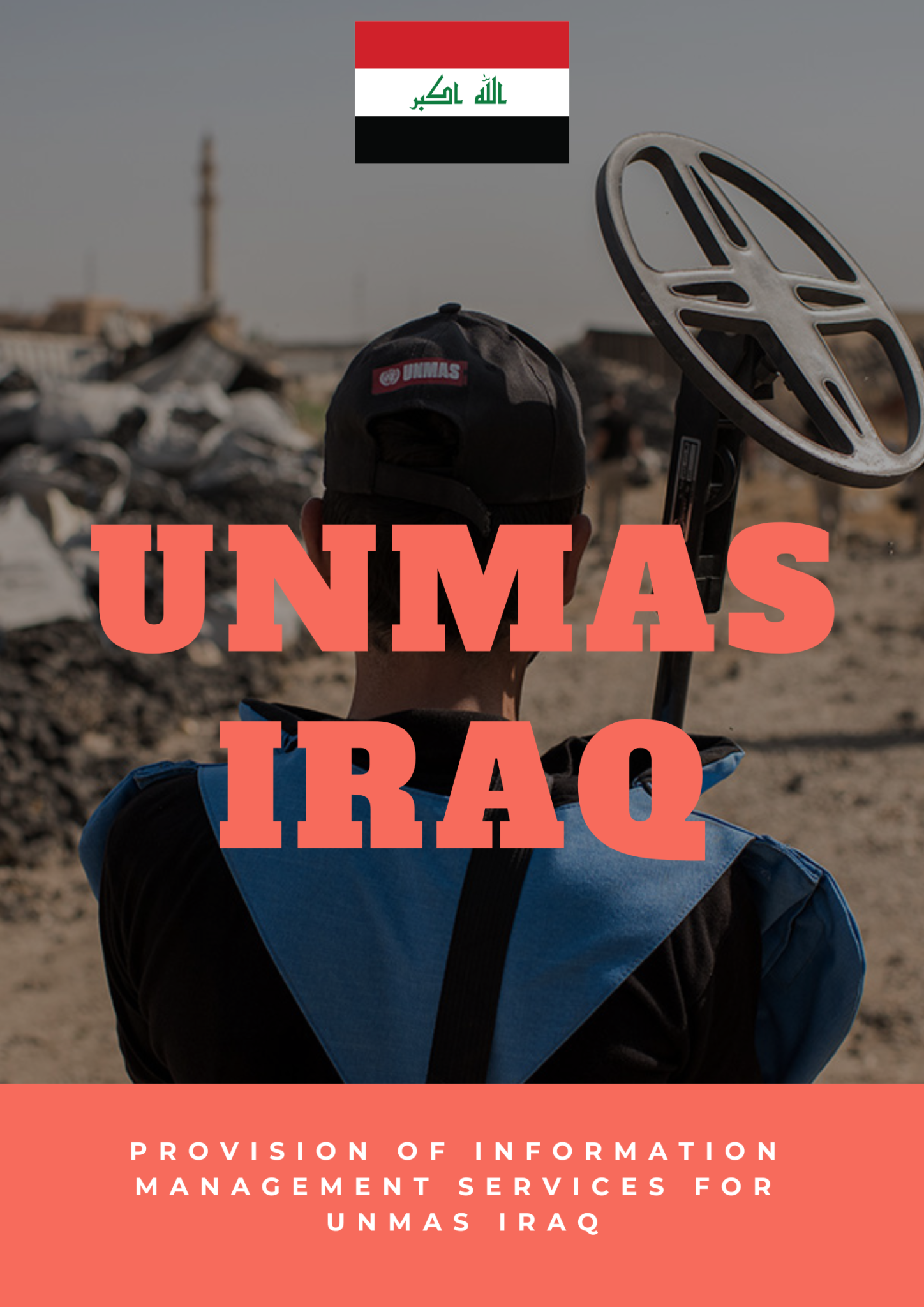
Provision of Information Management Services for UNMAS Iraq
key activities include collecting, analyzing, customizing and
reporting mine action and security-related information,
integrated where necessary, to serve as a common service
platform for humanitarian actors all across Iraq. This allows
partners to immediately assess security situations and, using
easily accessible, collated, relevant and timely information,
plan evidenced-based, prioritized and safe operations.
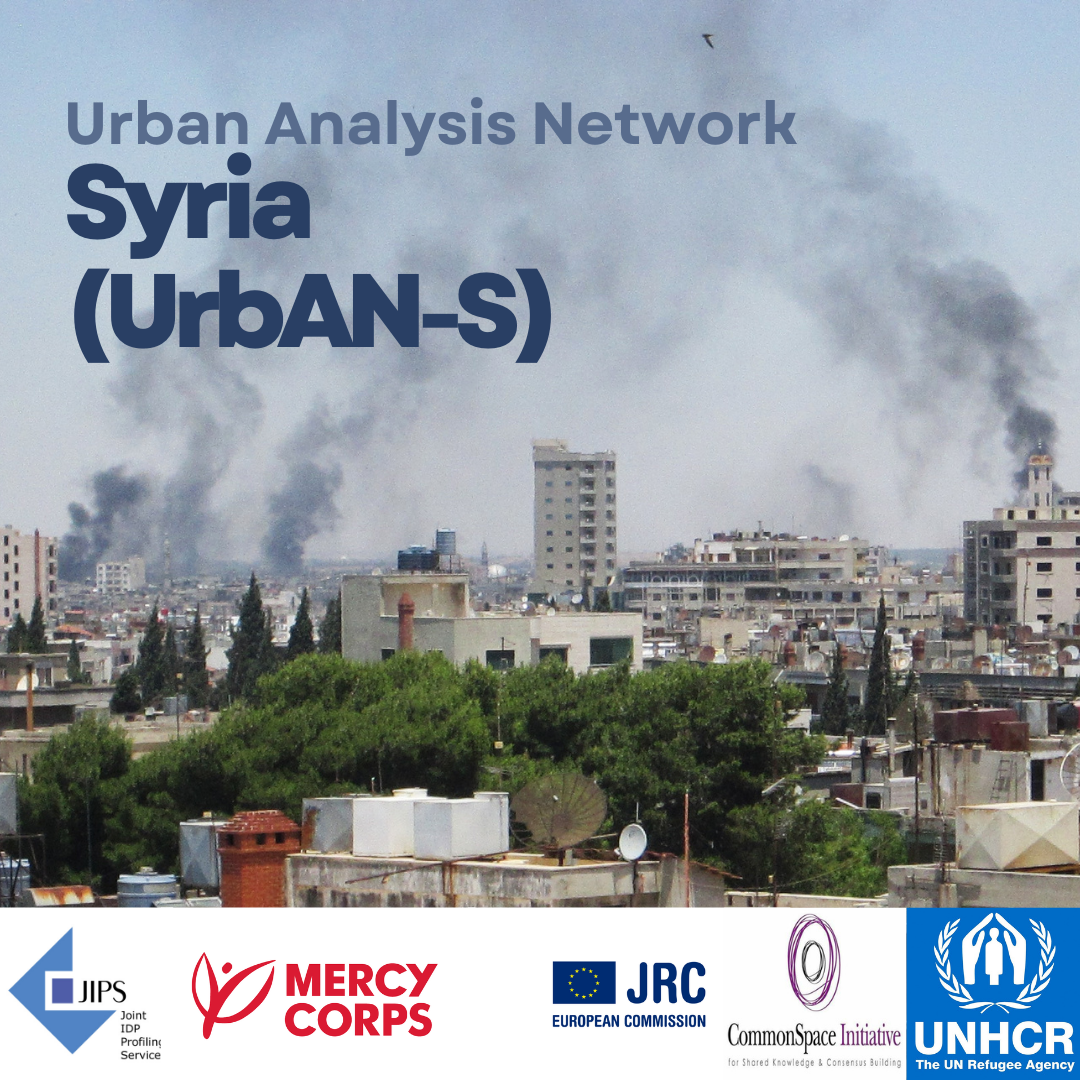
Urban Analysis Network Syria (UrbAN-S)
The objective of UrbAN-S is framed within the global efforts to
enhance responses in urban areas, including the Global Alliance
for Urban Crises, and the Inter-Agency Standing Committee
(IASC), which called for a paradigm shift in humanitarian
assistance in urban areas to be community-based, rather than
an individual beneficiary approach. This includes increased
assistance support, filling gaps in existing institutions rather
than establishing parallel systems, and strengthening linkages
between humanitarian and development initiatives.
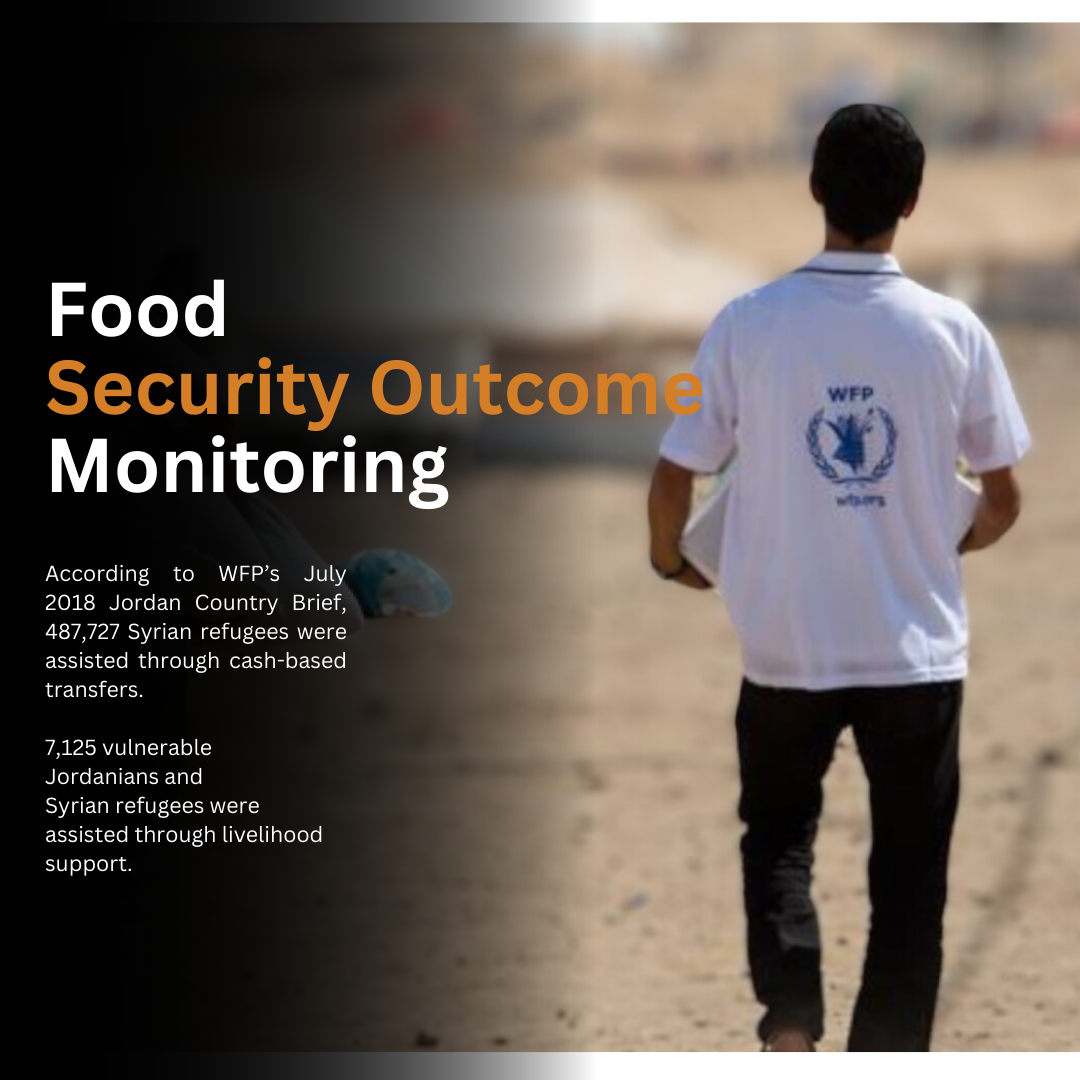
World Food Programme (WFP) Food Security Outcome Monitoring
WFP looks to collect data, findings and input from thousands of households with the support of 3iSolution to assist with their Food Security Outcome Monitoring project. Funded by the WFP,
this collaborative effort commenced in July 2018 and remains an ongoing project.
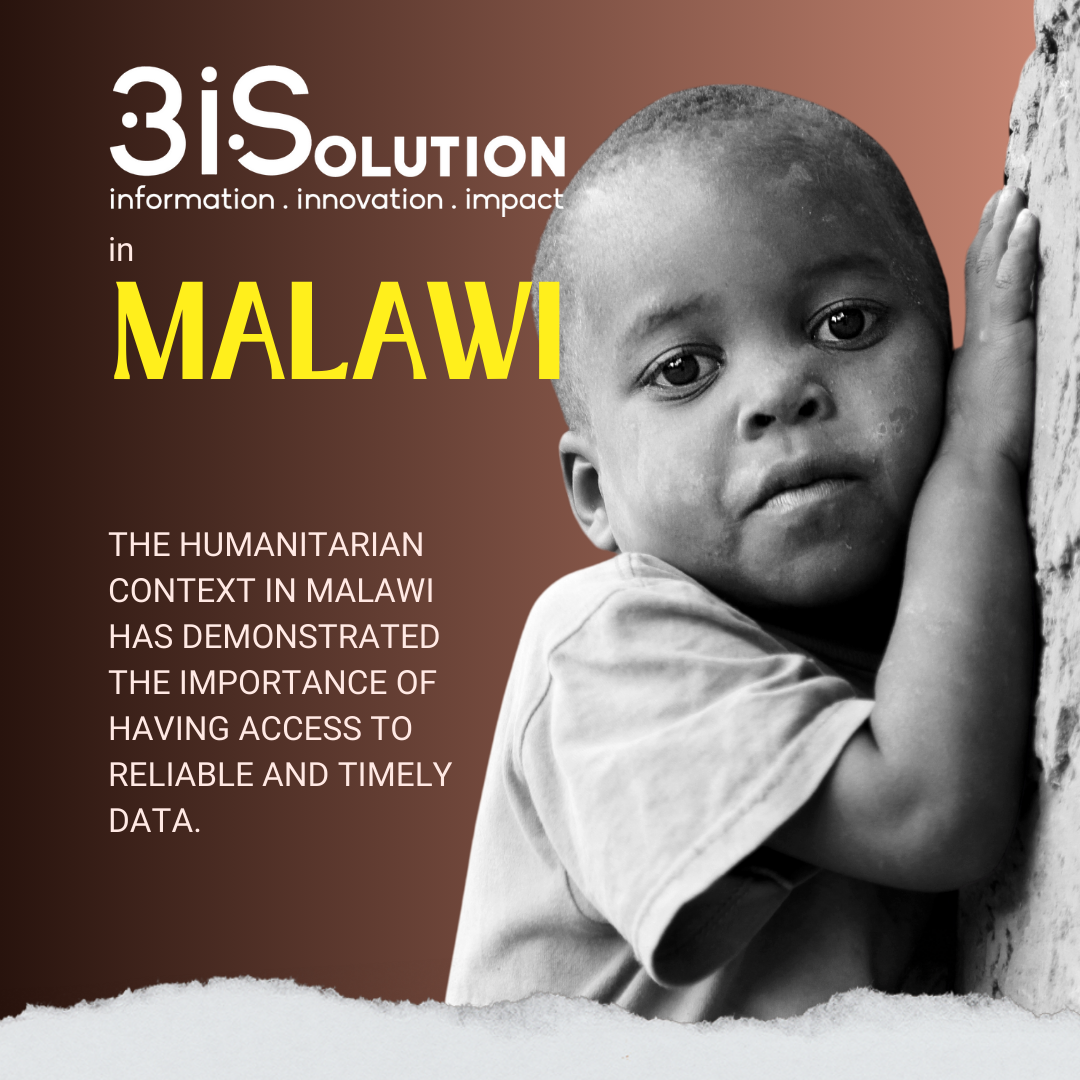
Information Management Services to Humanitarian and Development Organizations
Starting in September 2021 and in collaboration with the Office of the
United Nations Resident Coordinator Office (RCO) and the World Food
Programme (WFP), the 3iSolution program aims to strengthen information
management coordination by improving the capacity of data producers to
collect, process, analyze, and disseminate timely information to decision
makers.
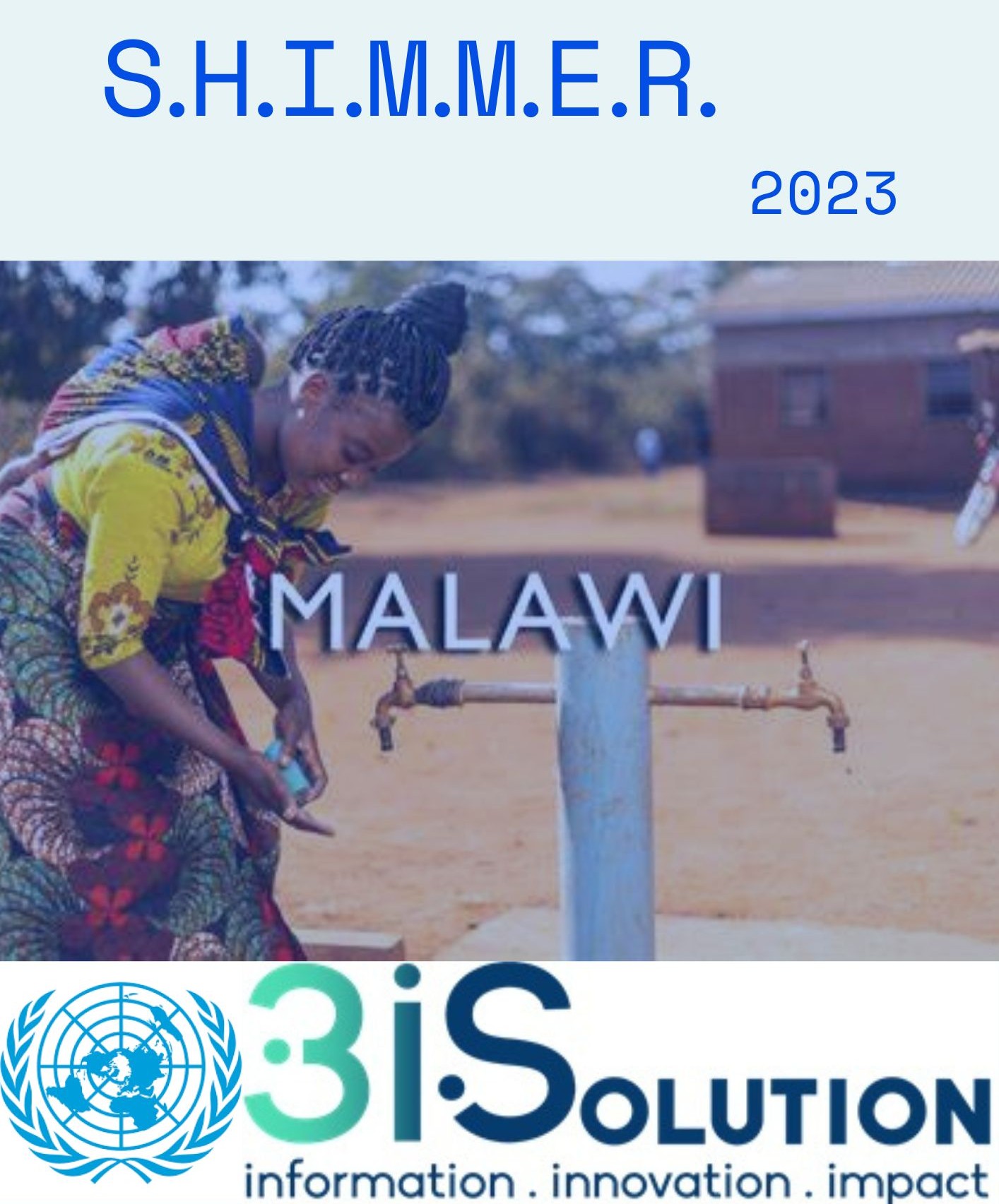
Strengthening Humanitarian Information Management in Malawi for Enhanced Response (SHIMMER)
3iSolution has operated in Malawi since 2021, supporting the UN Resident Coordinator Office in information management and training IM personnel. The project aims to strengthen humanitarian IM systems by enhancing staff capacity, tools, and data management at national and local levels.
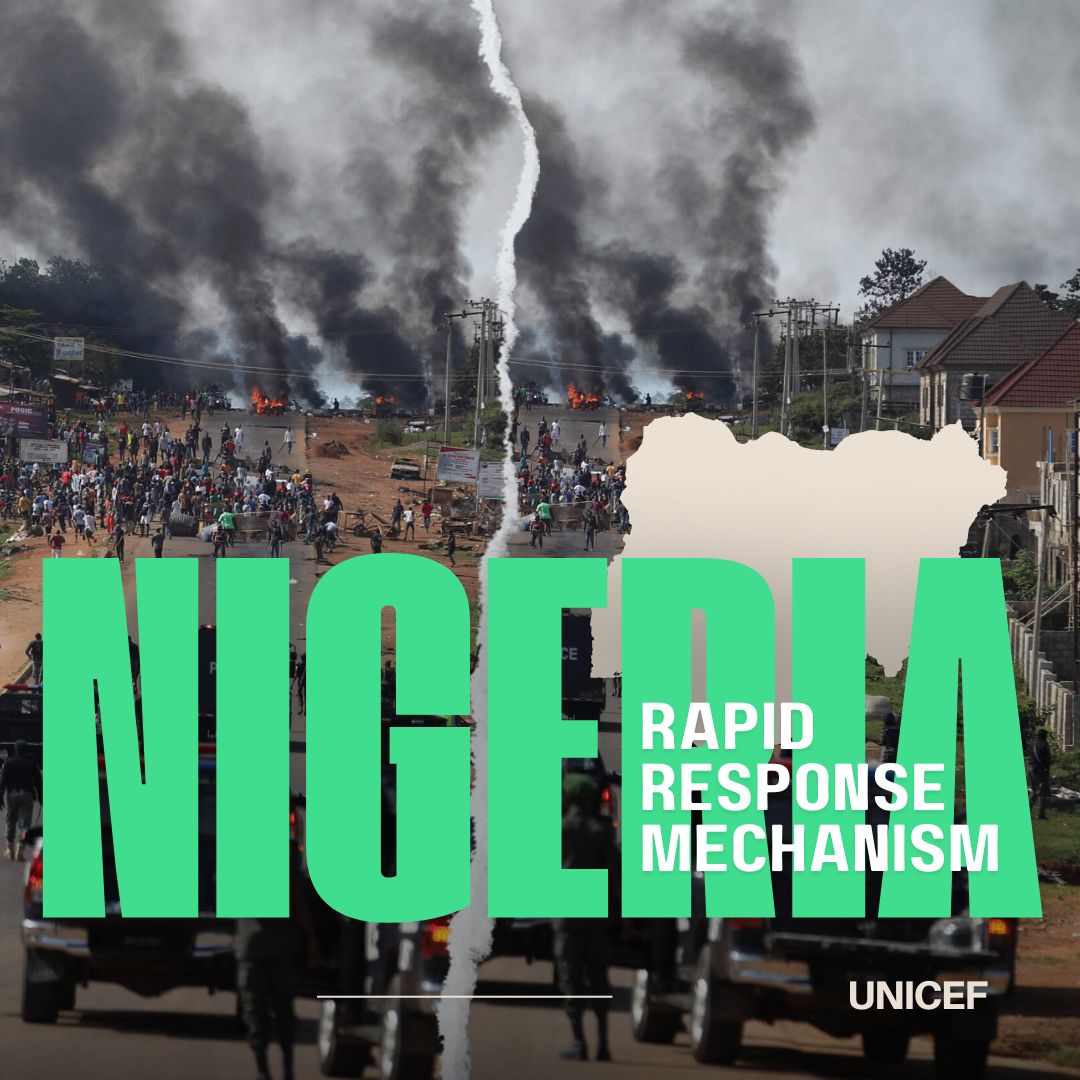
Rapid Response Mechanism project in Nigeria
3iSolution hosts the Nigeria INGO Forum (NIF), coordinating and advocating for humanitarian organizations in north-east Nigeria's conflict. NIF fosters collaboration and adherence to humanitarian principles, earning high member recognition. It recently became a co-chair in a UNICEF-led platform, strengthening regional support.
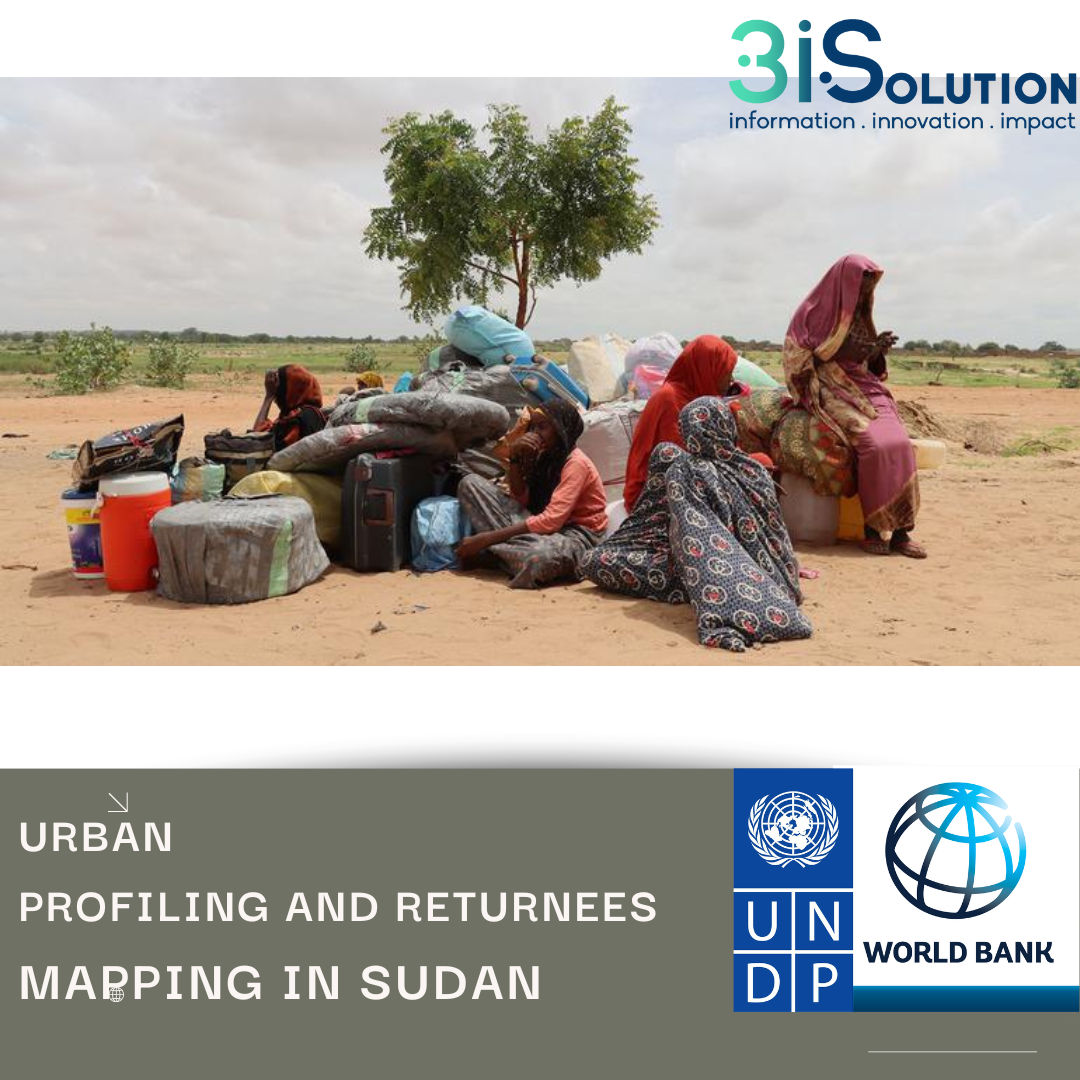
Profiling Coordinator Support to Resident Coordinator's Office in Sudan
The Sudanese Government as well as the aid community have
recognized the need to develop refined strategies to support
durable solutions for the displaced, based on evidence on the
profile of the displaced and displacement affected communities,
as well as on an analysis of their preferred solutions.
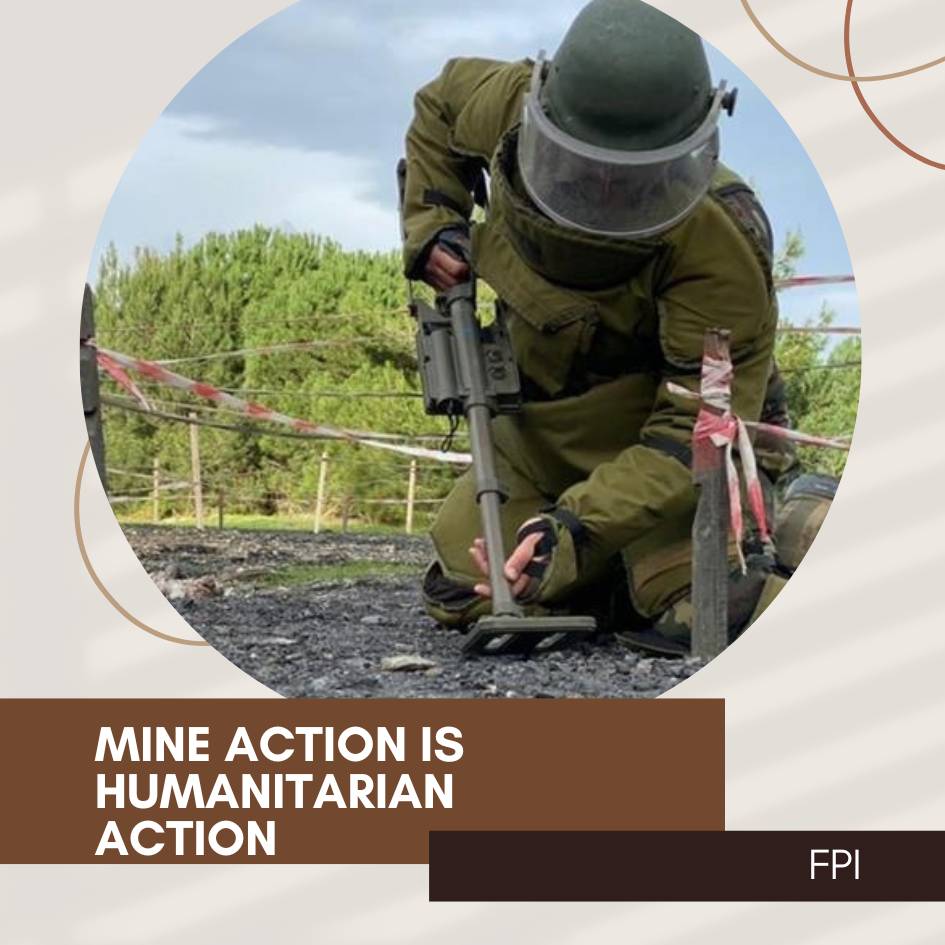
Humanitarian Mine Action Response in Northeast Syria
After gaining de facto autonomy in 2012, Northeast Syria (NES) has faced ongoing conflicts involving multiple actors and widespread explosive weapon contamination. Since 2017, HMA organizations have worked in the region, with four international and one national organization providing clearance, risk education, and victim assistance.

Humanitarian Mine Action Response in Northeast Syria
The primary objective of the project is to provide critical information management support and capacity building activities to the National Mine Action Authority in Chad (HCND) to further develop their capabilities in
information management and mine action.
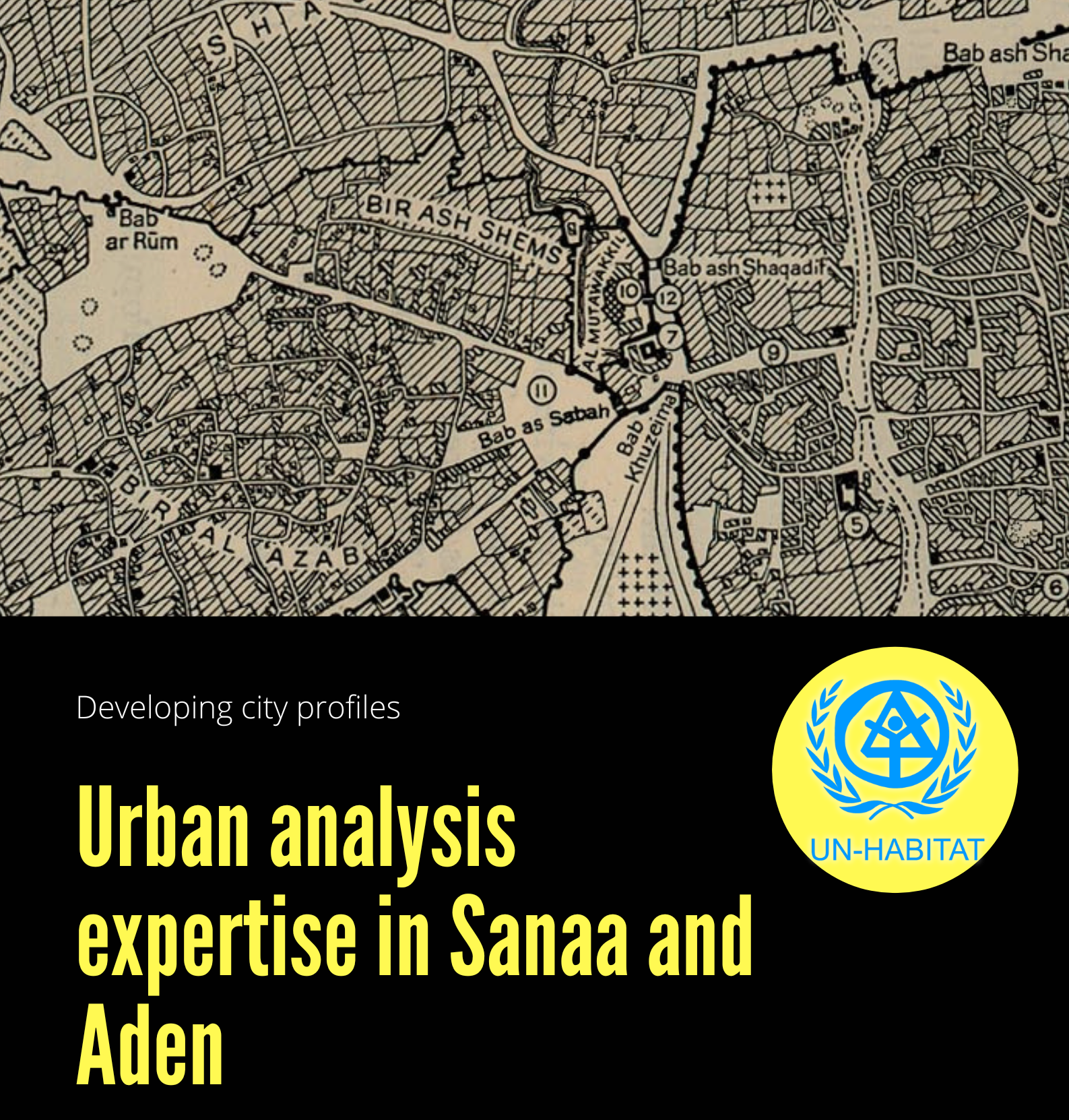
Rapid City and Neighborhood Profiling of Sanaa and Aden
The initiative includes urban analysis expertise, information management tools, and collaborative approaches. Expected outcomes include a comprehensive urban analytical framework, conflict-sensitive assessments, an urban information management system, damage evaluations, city and neighborhood profiles, a national urban recovery strategy, and capacity-building efforts for local authorities, NGOs, UN agencies, and academic institutions.
